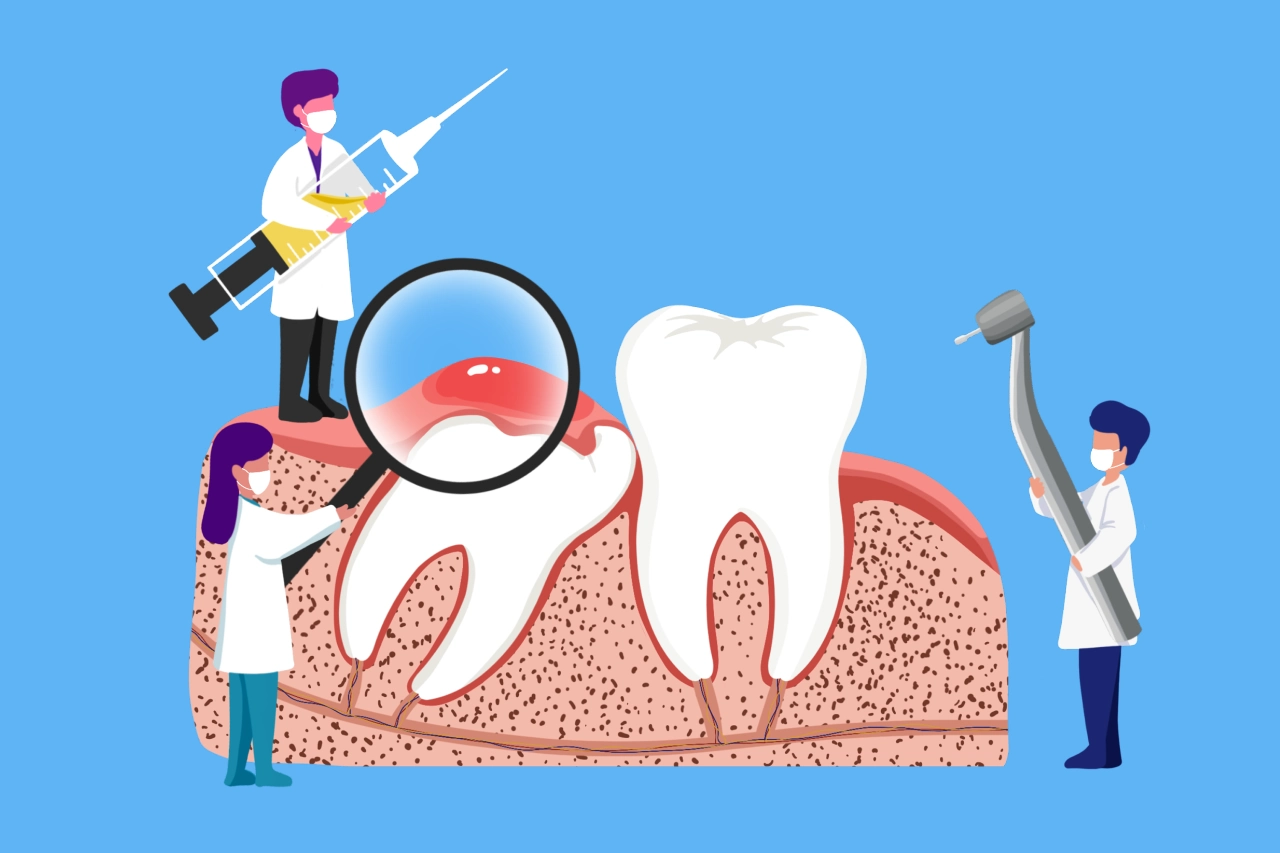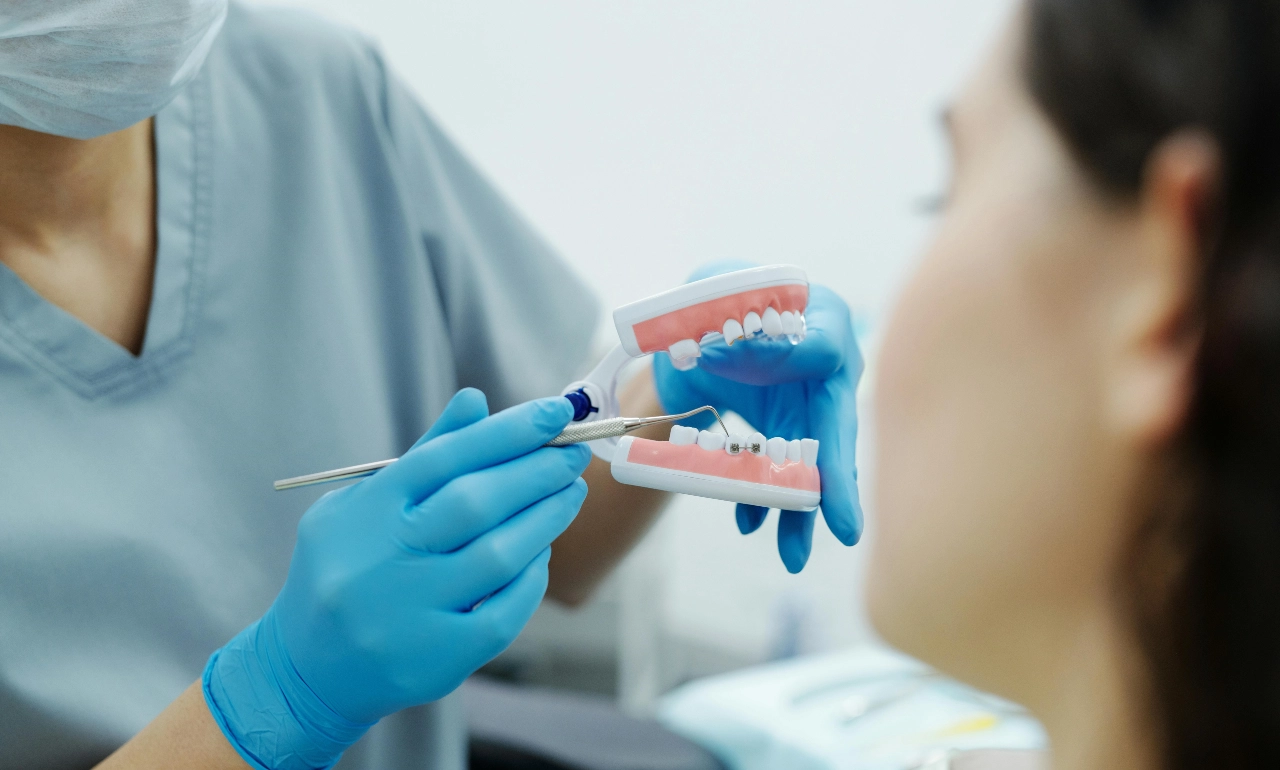Wisdom teeth, also known as teeth number 8, are the last teeth in the human lower and upper jaw. Usually they will begin to grow when we reach the age of 17 to 25, however there may be cases where they grow later or do not grow at all.
The process of growing wisdom teeth can go smoothly or encounter complicated problems, causing a lot of trouble for adults.
What are wisdom teeth?
Wisdom teeth are the last 4 molars in the oral cavity, each jaw has 2. They are numbered 1, 2, 3 and 8, corresponding to their position in the function. It play an important role in chewing food, supporting digestion and maintaining tooth balance. In addition, it also play a supporting role in the chewing process, especially when eating hard foods.
However, in some cases, it cannot grow in the correct position, leading to dental problems and even affecting a person’s overall health.
The process of growing
The process of growing wisdom teeth usually lasts from a few weeks to a few months, and can happen silently or cause a lot of pain. Below are the detailed stages of growth that you need to know:
Early stage:
Wisdom teeth begin to grow from the gums, causing pain, swelling, and discomfort. This is the first stage and usually occurs when you reach the age of 17 to 21. During this stage, it will try to break through the gum layer and begin to grow gradually.
Middle stage:
For people with a narrow oral cavity or not enough space for wisdom teeth to grow, they will put pressure on adjacent teeth during their growth. This can cause pain, bleeding and gingivitis. This stage usually occurs when you reach the age of 20 to 25.
Final phase:
When wisdom teeth have fully erupted, but there is not enough space for them to tilt into the correct position, they will continue to put pressure on the surrounding teeth. This can cause difficulty in oral hygiene, causing tooth decay and periodontitis. This stage usually takes place when you reach the age of 23 to 25..


Symptoms of growing
Common symptoms of wisdom teeth include:
- Pain and swelling of the gums around the teeth.
- Discomfort when chewing or opening the mouth.
- Pressure and pain in the oral cavity.
- Bleeding gums.
- Gingivitis.
In addition, other symptoms may occur such as headaches, earaches, and an unpleasant feeling in the throat. These symptoms can last from a few days to a few weeks after the wisdom teeth have erupted.
Common problems related to wisdom teeth
Wisdom teeth are misaligned
In some cases, the wisdom tooth cannot erupt in the correct position, leading to its misalignment. This can cause pressure on surrounding teeth, leading to dental problems such as tooth decay, periodontitis, or even blocked saliva outlet. If not treated promptly, misaligned wisdom teeth can lead to the movement of other teeth in the jaw, causing a variety of dental problems.
Gum infection
Because wisdom teeth often have to break through the gum layer to grow, this can lead to gum infection. The main cause is bacteria and plaque buildup. If not treated promptly, a gum infection can spread to the entire oral cavity and cause more serious problems.
Affect to other teeth
When it grow in the wrong position, they can put pressure on the surrounding teeth and lead to their movement. This can cause dental problems such as tooth decay, periodontitis and tooth misalignment.
How to care for wisdom teeth
To avoid problems related to wisdom teeth, you need to take care of them properly. Here are simple ways to care them:
- Maintain adequate and effective oral hygiene by brushing your teeth at least twice daily and using dental floss.
- Use mouthwash to remove plaque and bacteria in the oral cavity.
- Avoid eating hard foods and chewing gum too much, as it can put pressure on wisdom teeth and surrounding teeth.
- Change your diet, eat less sweets and more vegetables to limit the accumulation of plaque on your teeth.
- Promptly treat problems related to these teeth such as gum infection or tooth decay.
- Adjust the position of these teeth if they are misaligned.
When is it necessary to have wisdom teeth extracted?
In some cases, the extraction is necessary. This may be recommended if wisdom teeth are misaligned, do not have enough space to grow, or are causing dental problems such as tooth decay or periodontitis. The extraction is usually performed by a dentist and requires recovery time afterward.
Risks of not treating wisdom teeth
Not treating it can lead to dental problems and affect a person’s overall health. The main risks include:
- Gum infection: If not treated promptly, gum infection can spread to other areas of the oral cavity and cause more serious problems.
- Tooth decay: Wisdom teeth that are not adequately cleaned can lead to plaque buildup on the teeth and cause tooth decay.
- Periodontitis: Misaligned wisdom teeth can create favorable conditions for bacteria to accumulate and cause periodontitis.
Suitable menu when wisdom teeth grow
When it begin to grow, choosing the right menu can help reduce uncomfortable symptoms. Here are some foods you should eat when your wisdom teeth are growing:
- Foods rich in calcium: Calcium is an important element that helps strengthen teeth and bone health. Eat foods like milk, yogurt, nuts, and green vegetables to provide your body with enough calcium.
- Soft foods: Eat soft foods such as porridge, soup, or steamed foods to reduce pressure on wisdom teeth and make chewing easier.
- Foods rich in vitamin C: Vitamin C helps strengthen the immune system and reduce gingivitis. Eat more fruits and vegetables rich in vitamin C such as oranges, strawberries, or tomatoes.
- Water-rich foods: Make sure you drink enough water every day to keep your oral cavity moist and reduce discomfort when it grow.
Advice from experts
For detailed information and advice on effective wisdom tooth care, you should consult a dental specialist. The doctor will evaluate the situation of the wisdom teeth and recommend appropriate treatment methods. At the same time, they will also instruct you on how to properly care for your teeth to avoid related problems.
If you experience any symptoms of pain or discomfort when wisdom teeth grow, see your dentist immediately for timely advice and treatment.
Conclude
Caring for wisdom teeth requires attention and patience, and requires consultation with a specialist to ensure your oral health is always maintained at its best. Remember, timely treatment and proper care will help you avoid unwanted problems related to wisdom teeth.





